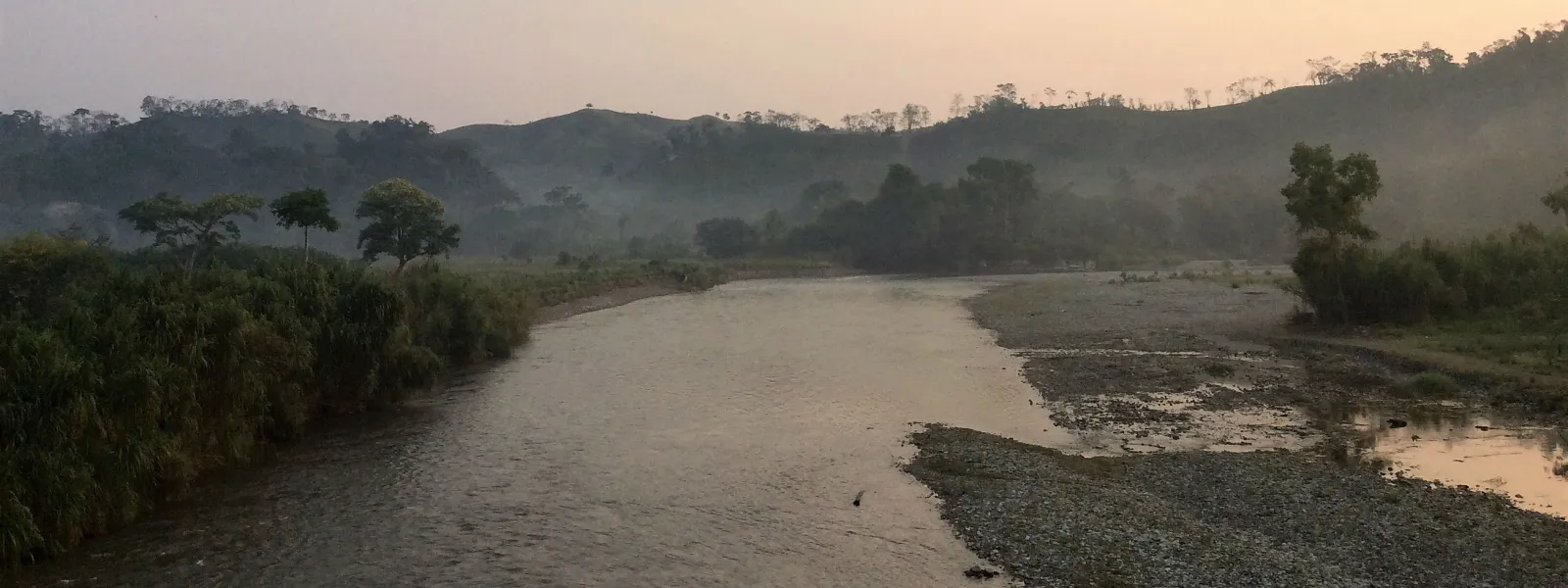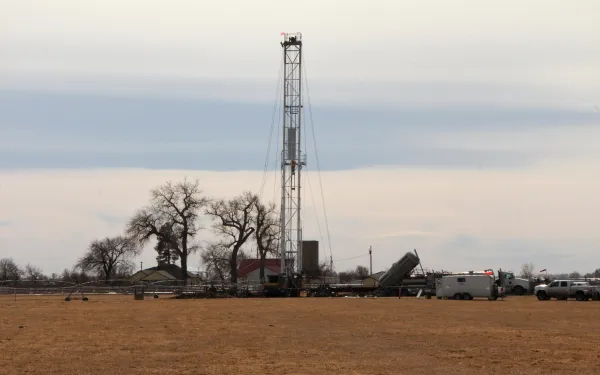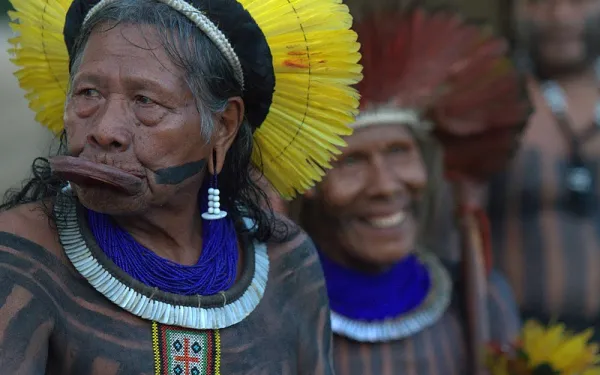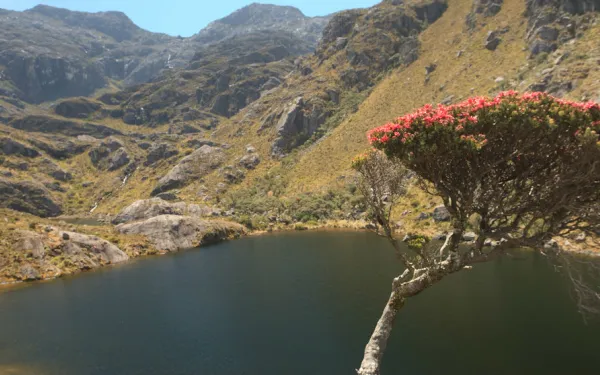
Project
Liliana Ávila /AIDAMayan women’s struggle before the Inter-American Development Bank in Guatemala
Mayan communities succeeded in getting the IDB Invest to develop a responsible exit plan after withdrawing its financing for two hydroelectric projects that negatively impacted ecosystems and the livelihoods of indigenous peoples, especially women, in the micro-region of Yichk'isis (Ixquisis).
In the struggle to defend their water, territory and way of life, indigenous Mayan communities in the Yichk'isis (Ixquisis) micro-region of northern Guatemala convinced the Inter-American Development Bank Group to withdraw its financing of two hydroelectric dams whose implementation violated their rights. The decision was also significant in that the IDB, for the first time, designed a responsible exit plan.
That historic advance was the result of the complaint that the communities filed in August 2018—with the support of AIDA, the Plurinational Ancestral Government of the Akateko, Chuj, and Q'anjob'al Native Nations, and the International Platform against Impunity. The complaint was filed with the Independent Consultation and Investigation Mechanism (MICI), the IDB Group's accountability office.
In resolving the case in September 2021, the MICI concluded that IDB Invest failed to comply with its own operational policies and safeguards, in the framework of the financing granted to the company Energía y Renovación S.A. for the implementation of the San Mateo and San Andrés hydroelectric projects.
Learn more about this achievement
In the mountains of Northwestern Guatemala, near the border with Mexico, the land is rich and fertile. Several important rivers and many other water sources feed the soil.
The residents of these mountains, many indigenous women of Mayan descent, have long depended on the waters to nourish them, to provide them with fish, as well as for agriculture, sanitation, and cooking.
But the construction of the San Mateo and San Andres dams has caused water scarcity and the contamination of rivers and other natural resources long cherished by the communities.
The near lack of water has also drastically reduced harvests, lessening the income gained from selling corn, wheat, beans, coffee, sugar cane and other products in the market. As a result, the conditions of poverty in the area have deepened.
And the risk situation is profound, particularly for women, who have played a very important role in the defense of water and territory threatened by hydroelectric projects, and are therefore victims of intimidation and stigmatization.
As guardians of their land and water, they have come to its defense and they’ll continue to prevent environmental deterioration from further harming their families.
Read our fact sheet on the case

Related projects

The Final Frontier: Public policies, impacts and resistance to fracking in Latin America
Heavily promoted by the United States, the exploitation of unconventional hydrocarbons through fracking has sought to expand into nations throughout the Americas. It has done so despite the fact that none of those governments have comprehensive knowledge of its risks, the serious and irreversible damage it does to human and environmental health, or how to prevent and mitigate those risks. That’s why the Latin American Alliance On Fracking (ALFF) published this report—to contribute to the debate, and spread awareness of the impacts of this controversial technique. Throughout these pages we address the situation of fracking in six countries: Argentina, Bolivia, Brazil, Chile, Colombia and Mexico. Each case analyzes: the context of energy development in the country; public policies to promote and regulate fracking; the social, environmental and economic impacts of fracking on people, their human rights, and their land; and the advocacy, mobilization and resistance strategies deployed in each country. The report concludes with a summary of conclusions and recommendations in light of the analysis of and reflection on the different cases studied. As part of ALFF, it is our goal to feed the discussion of an urgent change to the energy model of our region, to arrive at one that is sustainable and socially just. We believe that the forms of production, distribution and consumption of energy promote in our region reflect the unjust and deeply unequal system of social relations in the region. This is the social, political and economic reality that the promotion of fracking reinforces. This is what we want to change. Download the report (in Spanish)
Read more
Belo Monte: Fueling Our Fight for Justice
By María José Veramendi Villa Even as the turbines of the Belo Monte Dam have begun turning, the fight for justice continues. The ongoing operation of the world’s third largest dam—corrupt and careless as it is—cannot stop us. In fact, each new allegation of corruption and abuse only fuels our desire for justice for those who have been affected by the dam. And our most important battle is now strongly underway: our case before the Inter-American Commission on Human Rights, which opened for processing at the close of last year. In it, we’re working to hold Brazil accountable for the countless human rights violations that have been committed in the name of the Belo Monte dam: the absence of consultation with and free, prior and informed consent of indigenous communities; the lack of adequate assessment of environmental and social impacts; forced displacement; and severe violations to the rights of indigenous peoples, riverine communities and residents of Altamira. We’re in the process of getting the case admitted before the Commission, so they can establish—as an independent, international body—if these violations occurred and whether the State must respond for them. As part of the process, Brazil had to respond to our allegations before the Commission. We received their response on August 9 and have just submitted our legal submission to counter their claims. We need to ensure Commission understands the importance of their role in investigating the human rights abuses that have been suffered due to Belo Monte. Even as I write this, the State and dam operators continue to blatantly disregard the human rights of the people of the Xingu River basin, living in the dam’s shadow. On September 1, for instance, the dam’s operating license was suspended yet again because sanitation systems in the city of Altamira—a legal obligation operators were required to meet long ago—were never installed. Wastewater still floods the streets of Altamira, and threatens to turn Belo Monte’s reservoir into a stagnant pool of sewage. Unfortunately, as with many legal decisions attempting to protect the rights of those affected, the suspension was overturned a few weeks later. It’s clear the forces behind Belo Monte have no respect for the environment in which they’re working, and even less for the local people who depend upon the river and forests for their survival. Many of the people we represent live in the neighborhoods of Altamira, and are exposed to raw sewage. Those who live outside the city have been displaced from their land, cut off from their primary water source, or have had their way of life destroyed. We must ensure the Brazilian State is held accountable for the immense environmental and social damage the dam has caused. Rest assured, we won’t stop until we achieve justice for the people of the Xingú.
Read more
Civil society urges World Bank to withdraw funding from Colombian mining project
Organizations argue that the International Finance Corporation invested in a gold mine without taking into account potential environmental impacts, thereby failing to comply with its own investment standards. The proposed mine threatens Colombia’s Santurbán Páramo, a high-Andean ecosystem that provides water to millions of people. Washington, DC. A coalition of civil society organizations met at World Bank headquarters yesterday to demand that the International Finance Corporation (IFC), a member of the World Bank Group, withdraw its investment in the Angostura mine. The proposed gold-mining project would be located in Colombia’s Santurbán Páramo, a high-Andean ecosystem that supplies drinking water to more than two million people. The organizations also delivered a petition, signed by thousands of people from throughout the Americas, calling on IFC to withdraw its investment immediately. To present their demand, the organizations met with representatives of the IFC. They are also meeting with members of Congress and representatives of the US Department of State to discuss the situation in the Santurbán páramo and the risks its defenders face. The Committee for the Defense of Water and Páramo of Santurbán led the coalition, with support from the Center for International Environmental Law (CIEL), the Interamerican Association of Environmental Defense (AIDA), the Center for Research on Multinational Corporations (SOMO), and Mining Watch Canada. The demand presented yesterday tops off an important year in the fight to defend Santurbán. In March, the Canadian company developing the mine, Eco Oro, announced its intention to file an international arbitration suit against the Colombian government. In February Colombia’s Constitutional Court issued a ruling that bans all oil, mining, and gas operations in the country’s páramos. In August, an independent investigation undertaken by IFC’s internal watchdog, the Compliance Advisor Ombudsman, found that the investment in Angostura did not take into account the project’s potential environmental impacts, thus failing to comply with IFC’s own investment standards. The investigation was triggered by a complaint filed by the Committee and supported by the international organizations.
Read more